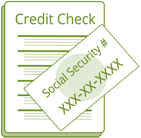May 26, 2011 (Chris Moore)
CoreLogic has released its 2011 Short Sale Research Study, “CoreLogic Analysis on Short Sale Trends, Risks, and Opportunites” and has found that “suspicious” short sale activity may cost the lending industry $375 million in 2011 with higher losses expected in the future as the pool of distressed properties increases.
For the study, CoreLogic defines “suspicious” short sale transactions as those where a lender may have incurred unnecessary losses due to the short sale transaction quickly followed by a resale transaction for a substantially higher price where that higher price is not supported by an underlying increase in property value.
The study revealed that short sales that show another sale transaction closing on the same day on the same property account for 16 percent of all suspicious short sales in the industry and that on average the resale price was $50,000 greater than what the lender agreed upon for the original short sale price.
The study also found that although Limited Liability Company buyers comprise only two percent of all short sale buyers, they comprise more than 25 percent of buyers in suspicious short sale transactions.
CoreLogic reports that losses in 2011 for lenders, servicers and investors are estimated to be in excess of $375 million in 2011 which is more than 20 percent above the estimated losses of $310 million in 2010 and that they expect “suspicious” short sale transactions to increase in the future.
States with the largest short sale volume (California, Arizona, Colorado and Florida) incur the highest rates of suspicious short sale transactions.
“Short sale volume has tripled in the past two years, and with approximately 1.7 million seriously delinquent loans, I expect volume to grow again in 2011,” said Craig Focardi, senior research director, consumer lending at The TowerGroup. “Identifying risk and monitoring distressed asset sale trends is absolutely essential for lenders to preempt potential losses.”
The study was designed to take a rigorously scientific, data-driven look at current trends in short sales and to identify inherent risks and opportunities associated with these transactions.
More information about “suspicious” short sale transactions is available on CoreLogic’s Website.
Tags: CoreLogic, suspicious short sales, lender losses, resale transactions, investors, lenders, servicers, short sale volume




